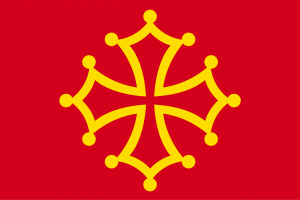Language/Occitan-post-1500/Vocabulary/Days-of-the-Week
Hi Occitan (post 1500) learners! 😊
In this lesson, we will learn the days of the week in Occitan (post 1500) and some interesting facts about how they relate to Occitan culture. By the end of this lesson, you will have expanded your vocabulary and learn about culture at the same time! Let's get started!
Consider exploring these related pages after completing this lesson: Food, Numbers, Fruits & Health.
Days of the Week[edit | edit source]
Days of the week in Occitan (post 1500) are masculine, and they do not have capital letters.
| Occitan (post 1500) | Pronunciation | English |
|---|---|---|
| lo diluns | lo di-loun | Monday |
| lo dimars | lo di-mars | Tuesday |
| lo dimècres | lo di-mescré | Wednesday |
| lo dijòus | lo di-jóus | Thursday |
| lo divendres | lo di-vèn-dre | Friday |
| lo dissabte | lo di-sab-té | Saturday |
| lo dimenge | lo di-mé-nge | Sunday |
To remember these days of the week, you can use the following analogy: Imagine that you are having a picnic in Occitania, enjoying Occitan food with your friends. Suddenly, one of your friends spills a glass of red wine on his white T-shirt! What a disaster! Then, another friend who is good at sewing says: "Lundi, je redime (raccroche) sa manche" which means "On Monday, I'll fix his sleeve". And he does, so your friend wears his T-Shirt again on Tuesday, hence "Mardi, mon ami te lave (t-lave)" which means "On Tuesday, my friend washes it for you". On Wednesday, you go to the market to buy some food and you find a lovely scarf for sale. You think: "Mërcres, mey trobin un escarf" which means "On Wednesday, I find myself a scarf". This Thursday, you go for a walk in nature and you see a beautiful tree, so you say: "Jo promogaï l'arbre divendres" which means "I'll protect the tree on Friday". On Saturday, you go dancing and sing lots of songs. On Sunday, you finally rest and relax.
Now, let's see some cultural facts related to the days of the week in Occitania!
Cultural Facts[edit | edit source]
- In Occitan literature, the calendar is often mythical, with the week composed of seven planets, each presided over by a supernatural deity.
- In some parts of Occitania, Monday was considered a day of rest, because it was the day when washing was done.
- In the Occitan region of Rouergue, it was believed that on Tuesdays, the night forces are powerful and that it is a day when things are not lucky. It was said that starting something on Tuesday meant it wouldn't be completed.
- Wednesdays were once considered the day when witches and fairies gathered. Bonfires were lit to drive them away.
- Thursday was once the day when people cut their hair.
- Fridays were considered the day of beauty and flirtation. Young girls would wear their best clothes and meet in the town square to walk around and proudly show themselves to potential suitors.
- In some parts of Occitania, Saturday was considered the ideal day to get married.
- Sundays were traditionally days of rest and family gatherings. People would gather at someone's home to share a meal together.
To help you remember these cultural facts, imagine that you are a time traveler who has traveled back to Occitania during the medieval times. You walk around and observe what is happening on each day of the week, taking note of the activities and beliefs of the people.
Let's put the vocabulary and the cultural facts into a short conversation.
Dialogue[edit | edit source]
- Person 1: Lo diluns, que fasem avuèi? (On Monday, what are we doing today?)
- Person 2: Lo diluns es lo jorn de se netejar, es plan calhut a l'ostal. (Monday is the day of cleaning, it's quite busy at home.)
- Person 1: A, compreni. Lo dimars, pòdes lavar ma camisòla? (Ah, I understand. On Tuesday, can you wash my shirt?)
- Person 2: D'acòrdi. Mas es lo dimècres que me veni comprar la seda a Rodez. (Okay. But it's on Wednesday that I'm going to buy silk in Rodez.)
- Person 1: Comprenc. Lo dijòus, que fasem? (I see. On Thursday, what are we doing?)
- Person 2: Lo dijòus es lo jorn de se talar lo cabelet. (Thursday is the day to cut the hair.)
- Person 1: Ah! E lo divendres? (Ah! And on Friday?)
- Person 2: Lo divendres, totas aquelas filhas se festinan per se far veire als gaugaires. (On Friday, all those girls are getting ready to show themselves to suitors.)
- Person 1: E lo dissabte? (And on Saturday?)
- Person 2: Lo dissabte, es lo jorn de se maridar. (On Saturday, it's the day of getting married.)
- Person 1: Comauna tradicion! E lo dimenge? (What a tradition! And on Sunday?)
- Person 2: Lo dimenge es lo jorn de la familha e de la blatèra. (Sunday is the day of family and chatting.)
- Person 1: Fantàstic. Me plai Occitània. Apondre ai aprés Occità al far una conversacion amb un èstrangièr. (Fantastic. I love Occitania. I'll add Occitan to my conversational skills when talking to foreign people.)
Congratulations! You have learned the days of the week in Occitan (post 1500) and some cultural facts that will help you better understand Occitan culture. Don't forget to use the vocabulary you've learned here in your daily conversations! And remember, to improve your Occitan (post 1500) Vocabulary, you can use Polyglot Club to find native speakers and ask them any questions.
➡ If you have any questions, please ask them in the comments section below.
➡ Feel free to edit this wiki page if you think it can be improved. 😎
Sources: - "Days of the Week in Occitan (post 1500)" on https://www.thoughtco.com - "The Occitan Calendar" on https://www.academia.edu.

